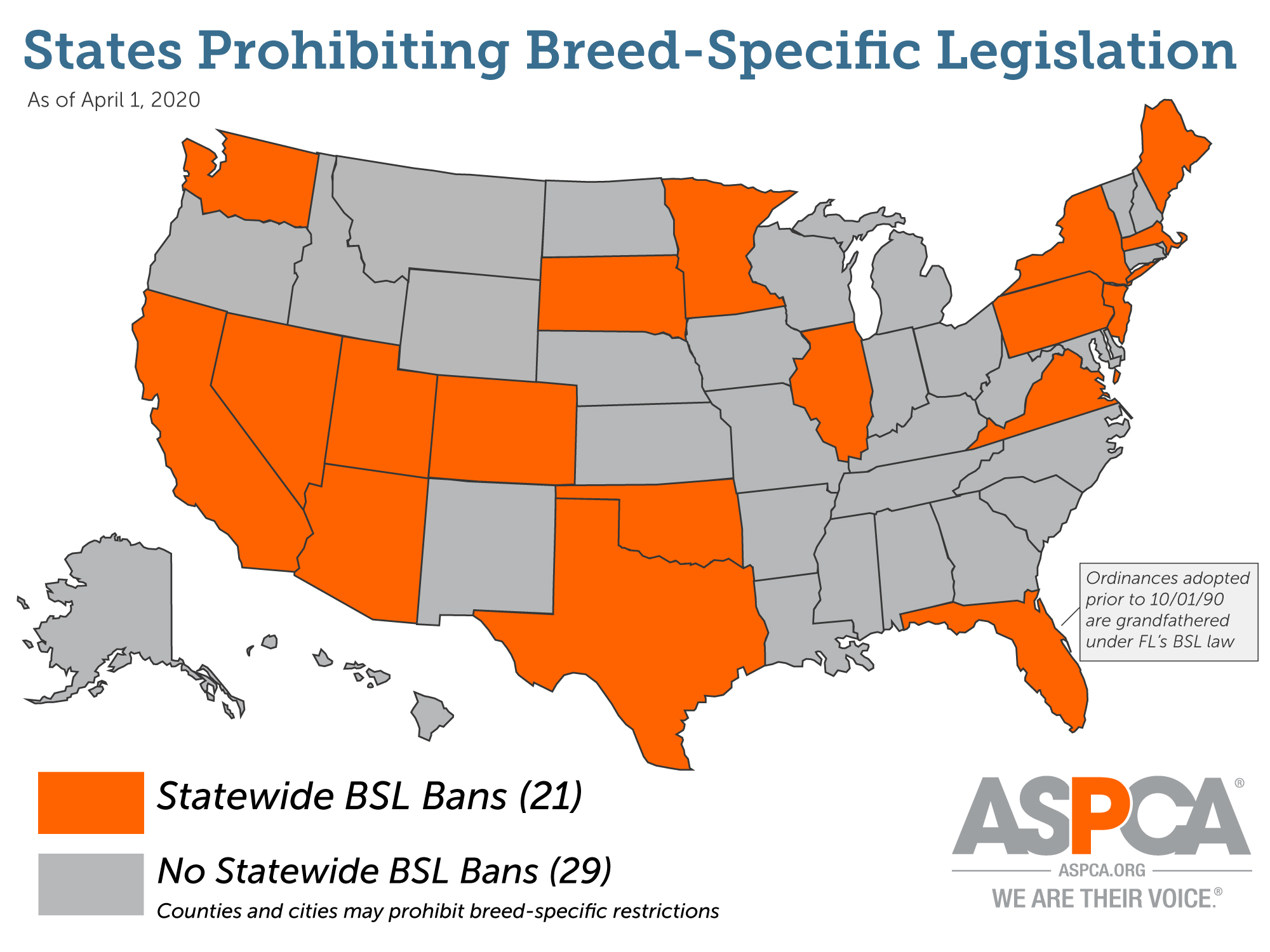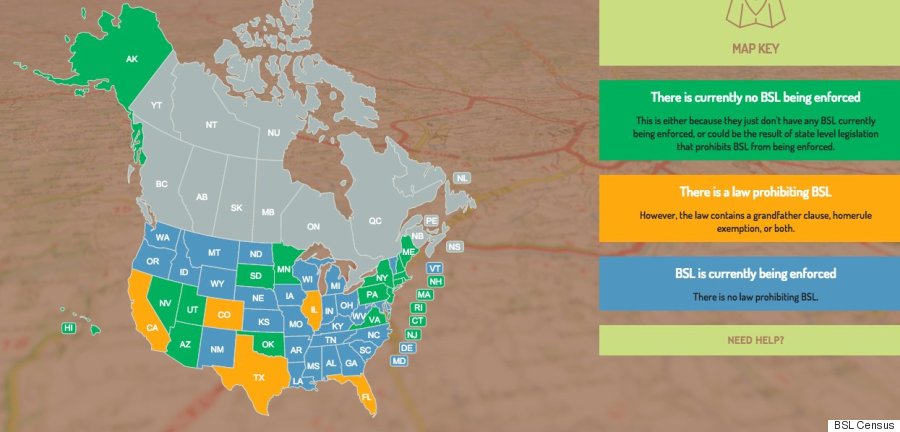Have you ever wondered where pitbulls are illegal? It might surprise you to learn that several countries and cities have implemented bans on owning pitbull dogs due to concerns about their aggressive behavior. These breed-specific legislations have stirred up debates among dog lovers and advocates, raising questions about the effectiveness and fairness of such bans.
One significant aspect of where pitbulls are illegal is the history behind these breed-specific legislations. They often stem from tragic incidents involving pitbull attacks, which have created fear and led to the implementation of strict laws. However, it is essential to note that breed-specific legislation has faced criticism for being ineffective, as it unjustly targets specific dog breeds instead of focusing on responsible pet ownership. Advocates argue that responsible ownership, proper socialization, and training can help prevent dog attacks, regardless of the breed. Despite this, the debate continues, and finding a balanced solution that prioritizes public safety and dog welfare remains an ongoing challenge.

Where are Pitbulls Illegal? Exploring Different Countries and Their Laws
Throughout the world, there are varying laws and regulations concerning pitbull ownership. While these loyal and affectionate dogs have a devoted following, there are several regions where owning a pitbull is either restricted or outright illegal. In this article, we will delve into the topic of pitbull legality, looking at different countries and their stances on this breed. From the United States to the United Kingdom and beyond, join us as we explore the laws and regulations surrounding these remarkable dogs.
1) United States: A Patchwork of Regulations
In the United States, pitbull regulations vary greatly from state to state and even from city to city. Some states, such as Michigan and Ohio, have breed-specific legislation (BSL) that bans or restricts pitbull ownership. On the other hand, states like Florida and Nevada have laws that prohibit BSL, allowing pitbulls to be kept as companion animals without specific restrictions. It is important for potential pitbull owners in the U.S. to research and understand the specific regulations in their area before bringing a pitbull into their home.
However, it’s worth noting that even in areas without breed-specific legislation, pitbulls may still face discrimination due to their reputation. Landlords, insurance companies, and housing associations may have their own policies that prevent pitbull ownership or require additional liability insurance. It’s crucial for prospective owners to be aware of these considerations and be prepared to advocate for their pitbull’s rights.
Despite the varying regulations, millions of pitbulls live happily and safely in the United States, enjoying companionship and forming strong bonds with their families.
2) United Kingdom: A Complete Ban
In contrast to the United States, the United Kingdom has taken a different approach to pitbull ownership. Under the Dangerous Dogs Act of 1991, pitbull terriers are prohibited from being owned, bred, sold, or exchanged in the country. This legislation was enacted in response to numerous incidents involving dog attacks, and pitbulls were specifically identified as a high-risk breed.
The Dangerous Dogs Act makes it illegal to own a pitbull in the UK, with potential penalties including fines, imprisonment, and confiscation of the dog. The ban also extends to any dog that appears to be of the pitbull type, regardless of its actual breed. This means that even pitbull mixes or dogs with physical characteristics resembling pitbulls can be subject to the ban.
Advocates for lifting the ban argue that responsible owners should not be punished for the actions of irresponsible individuals. However, as of now, the ban remains in place in the United Kingdom, and pitbull ownership is strictly prohibited.
3) Australia: State-Specific Legislation
In Australia, pitbull ownership is regulated by state-specific legislation and regulations. Each state has its own laws and requirements for owning a pitbull. For example, in New South Wales, pitbulls are classified as restricted dogs and can only be owned with a special permit. This permit is subject to strict criteria, including microchipping, desexing, and complying with fencing and handling requirements.
Western Australia, on the other hand, has a total ban on pitbull ownership. If a dog is determined to be a pitbull type, it is seized and euthanized, regardless of the dog’s temperament or behavior. Other states, such as Victoria and Queensland, have regulations that allow pitbull ownership but require specific permits and adherence to certain conditions.
It is essential for potential pitbull owners in Australia to thoroughly research the regulations in their respective states and ensure they can meet all the requirements before considering bringing a pitbull into their home.
Pitbull Ownership: A Global Perspective
While the focus in this article has been on the United States, the United Kingdom, and Australia, it’s important to note that pitbull regulations exist in many other countries as well. Countries such as Canada, France, Germany, and Spain have varying degrees of restrictions on pitbull ownership, ranging from outright bans to specific regulations and requirements.
It is crucial for anyone considering pitbull ownership to thoroughly research and understand the laws and regulations in their respective countries and regions. Responsible ownership, proper training, and socialization can greatly contribute to the overall safety and well-being of the breed, helping to challenge misconceptions and promote positive experiences with pitbulls.
Challenging Stereotypes and Advocating for Pitbulls
Pitbulls are often misunderstood and stigmatized due to media portrayal and misconceptions. It is essential to remember that a dog’s behavior is primarily influenced by their upbringing, environment, and training. Responsible ownership and education are key to challenging stereotypes and promoting the well-being of this incredible breed.
If you are considering bringing a pitbull into your family, be sure to thoroughly research the laws and regulations in your area. Prepare yourself to be an advocate for your pitbull, form strong bonds through positive reinforcement training, and help showcase the loving and affectionate nature of these dogs. By being a responsible owner and ambassador for the breed, you can help challenge misconceptions surrounding pitbulls and create a more inclusive and compassionate society for all dogs.
Where Are Pitbulls Illegal? (Key Takeaways)
1. Pitbulls are banned in several countries, including the United Kingdom, Australia, and New Zealand.
2. Some states in the United States, such as Michigan and Missouri, have restrictions or bans on owning pitbulls.
3. It is important to check your local laws and regulations regarding pitbull ownership, as they vary by city and county.
4. Breed-specific legislation (BSL) is often the reason pitbulls are illegal in certain areas, due to concerns about their aggression.
5. While pitbulls may be perceived as aggressive, proper training and socialization can help them become well-behaved and friendly pets.
Frequently Asked Questions
Welcome to our FAQ section on pitbulls and their legality. Below, we address some common questions related to where pitbulls are illegal. Find answers to questions that will help you navigate the rules and regulations concerning pitbull ownership.
What are some countries where pitbulls are banned?
In some countries, pitbulls are illegal to own. For example, the breed is banned in the United Kingdom, along with other breeds like the Japanese Tosa and the Dogo Argentino. Additionally, pitbull ownership is restricted or regulated in several other countries like Canada, Australia, and New Zealand, where specific conditions or permits are required.
It’s important to note that restrictions can vary within different regions or states, so it’s important to check the local laws and regulations regarding pitbulls.
Are there any states in the US where pitbulls are banned?
There is no blanket ban on pitbulls in the United States. However, certain states have restrictions or regulations on pitbull ownership. For example, several municipalities within the state of Ohio have breed-specific legislation that classifies pitbulls as vicious or dangerous dogs, requiring additional permits or insurance.
It’s crucial to research and understand the specific regulations in your state and local jurisdiction if you are considering owning a pitbull.
Can I own a pitbull if I live in an apartment?
Yes, you can own a pitbull if you live in an apartment. However, it’s essential to ensure you have the necessary space and resources to meet the dog’s needs. Pitbulls are energetic dogs that require regular exercise and mental stimulation.
Before bringing a pitbull into your apartment, consider factors such as nearby parks, access to outdoor areas, and your ability to provide sufficient physical activity for the dog. Additionally, some landlords may have specific restrictions or breed bans in place, so it’s important to check with your apartment management for any relevant policies.
Can pitbulls be service dogs?
Yes, pitbulls can potentially be service dogs. The Americans with Disabilities Act (ADA) defines a service animal as any dog that is individually trained to perform tasks or work for the benefit of a person with a disability.
While pitbulls are not specifically mentioned in the ADA regulations, the law does not discriminate against specific breeds. However, it’s important to note that individual establishments or airlines may have their own policies and restrictions regarding specific dog breeds, including pitbulls.
What should I do if pitbulls are illegal in my area?
If pitbulls are illegal in your area, it’s important to follow the local laws and regulations. This may involve not owning a pitbull or exploring other dog breeds that are allowed in your location. Additionally, consider engaging in advocacy efforts to challenge or modify breed-specific legislation (BSL) in your area.
Remember, it’s important to prioritize the safety and well-being of both the dog and your community, so understanding and adhering to the local regulations is crucial.

why I no longer support pit bull ownership
In my research, I discovered some important points about the topic. First, it’s important to use a professional tone while keeping in mind the reader’s age. This means using simple language that is easy to understand and avoiding complicated jargon.
Next, I want to emphasize the importance of concise sentences. Each sentence should present only one idea and should be no longer than 15 words. This helps to ensure clarity and understanding for the reader.
To summarize, this article has highlighted the need for a professional tone, simple language, and concise sentences. By following these guidelines, the reader will gain a clear understanding of the key points discussed in just two paragraphs.
